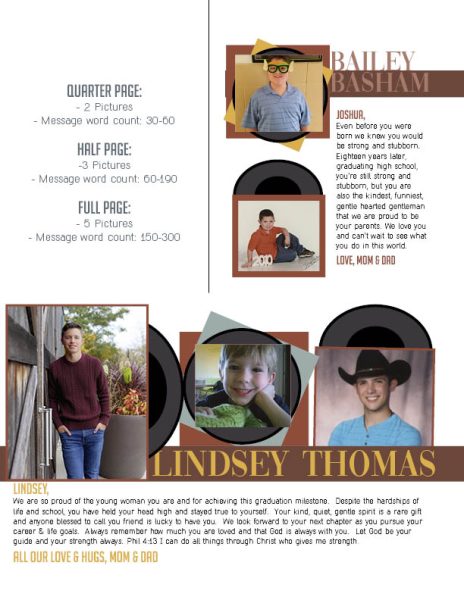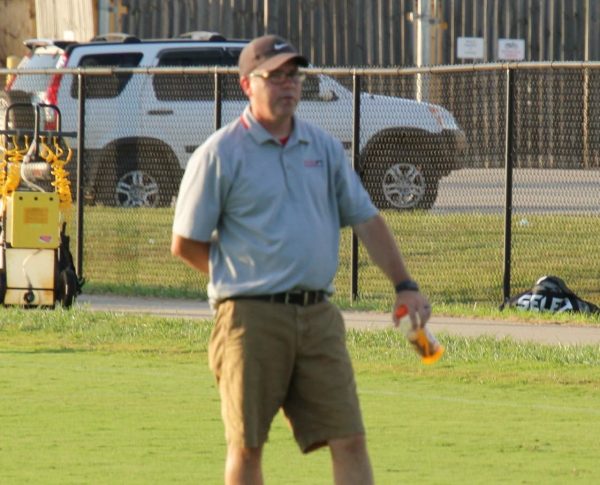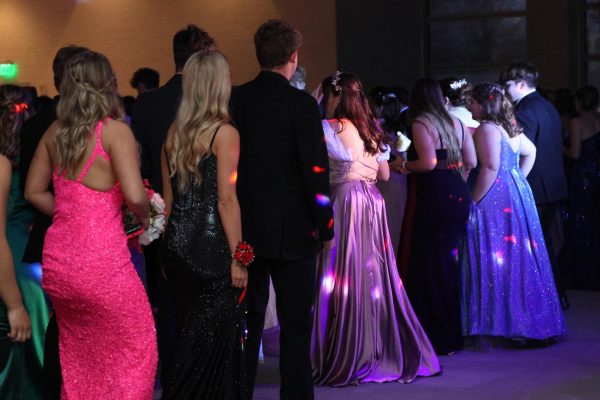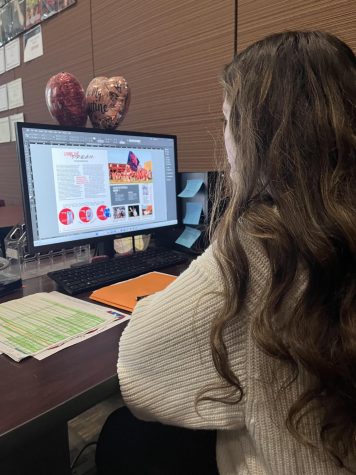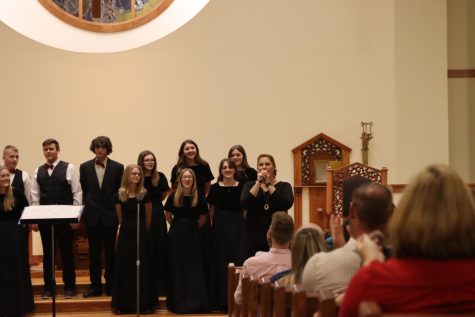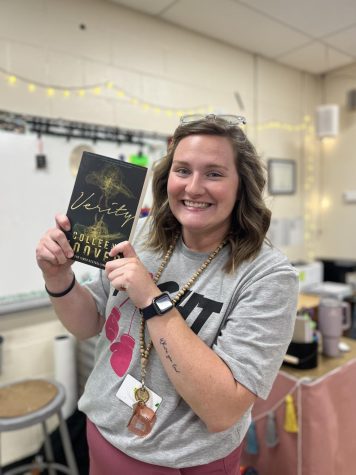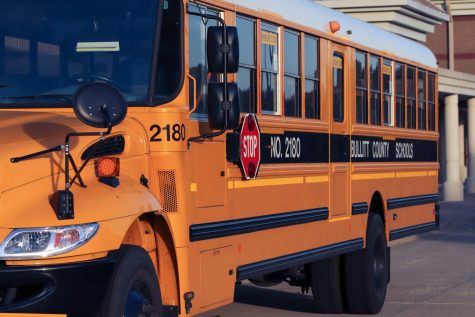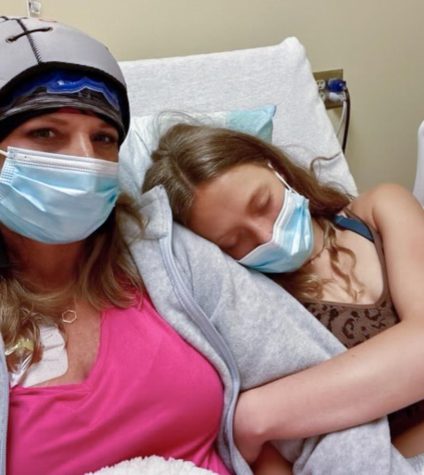Preparing To Be College and Career Ready
April 29, 2022
To be considered career and/or college ready when graduating, you must first meet all requirements needed in the pathway in which you are taking. There are many pathways that Bullitt East offers whether it be at the school or vocational, but here are eight of the pathways.
Media Arts:
Under the graphic design pathway, there is also the school newsmagazine, Livewire, run by senior Mia Maguire. Then there is also the yearbook staff, Endeavor, run by seniors Emma Wright and Avery Smith. There is finally Charged Media Solutions, the interns of Bullitt East High School, run by senior Keelin Davis. All of these classes, though, have the teacher/advisor of Larry Steinmetz, and he believes that this truly does serve a major purpose. “I think on the pathway aspect, kids are working in the industry standard on Adobe programs. So I think that, for kids who want to enter that field or do something similar, marketing based or business based, it’s really a no brainer, but those skills that they’re learning also carry over into such a variety of things that they might end up doing for a career in their life. I already mentioned marketing and business, and really the way that education is going, even at the college level, all of those things that used to happen in silos now happen all over the place,” Steinmetz said, “I think the biggest thing is twofold. Number one is just the confidence knowing that they’ve accomplished this and they can do big things. The other thing is just communication skills, just using what we’ve had to use working through a process, understanding what a team looks like, understanding how to work with customers, because in our society, the cans and the cannots are going to be separated by who can work with people and deal with people and who can’t. And that’s really what I feel passionately about; our kids coming out and being able to do that.” “I mean, it’s definitely given me a bigger insight on what really looks good. But it kind of helped me to develop my own taste, and what I like, and what I think looks good, and it kind of just opened up a new side of creativity that I know that I had, because I’m not a very creative person. But when I get into this, it’s kind of like a whole different level and I’m extremely creative when it comes to this graphic design.,” Davis said, “It looks a lot like: just finding things around the school that we can advertise for or design for, setting up photoshoots with our athletes, communicating with our athletes and other students. A lot of it is pretty much communication to make sure things get done, making sure people are making progress on things and stuff like that. It takes a lot of teamwork to do what we do because we take on a lot of big projects, so a lot of group work that we do, stuff like that.”
Engineering:
The first three years in the engineering pathway seem to be quite busy for the students, but the last year, after having learned so much, it seems to be a little easier, in senior Dimitri Mann’s opinion. Throughout all four years of Mann’s engineering pathway classes, his teacher was J.T. Lewis. “Previously, the first three years, I’m always doing something and stuff. This year right now, we are slowly doing a project, building up to it and that’s basically all,” Mann said, “It’s just been fun overall. I like the class, I like the freedom of the class, and I’ve become more expressive and I guess less introverted because of more working with teams and stuff.”
Business:
Business is in the process of starting a “BEyondTheChargers” podcast. In the podcast, their goal is to start marketing all the different events going on with the school and advertising them. All of this will be in partnership/collaboration with Bryan Mullins, the entrepreneurship teacher, but mainly ran by the marketing teacher, Fay Anderson. “Marketing was a pathway that was introduced by our business advisory council made up of teachers, parents, students, and members of the community, and they’re looking for students to be able to better handle customer service. So I think that that’s one plus for sure, and it allows the students to not only to market a business, but they can market themselves as well,” Anderson said, “I would like for them to be able to market themselves, market a business if that’s what they choose to do, and also just walk away with a better understanding of how customer service is important and how marketing doesn’t just deal with advertising. There’s so much more than advertising.”
Culinary:
Culinary has the classes of Foods and Nutrition, Advanced Foods, Culinary 1, Culinary 2 and Culinary 3. The school board will also now be working with the zoo for job shadowing, as well as culinary teacher Dave Bustetter hopes that next year, there will be JCTC college credits offered for people who want to go to culinary school. Sullivan University will also be offering job shadowing during the summer on Fridays from 9 a.m. to 1 p.m. for free. “When you get out of high school, you go into college or maybe trade school, and you move out of your parents house, you can’t eat out all the time; it’s not the healthiest thing for you. So, you learn the basic skills of how to not burn pizza rolls. So, that itself can really be beneficial to anybody,” Bustetter said, “An appreciation for the workforce that’s out there right now is a big one. For so long, so many people have taken advantage of not just people in the back of the house in the kitchen, but also in the front of the house. These people work hard to serve us. They’re doing us a favor, and at the same time, we’re not really doing them a favor; so appreciation for them. I want them to be able to make healthy choices and right choices and know not to continually indulge in your fried foods and stuff like that. Know how to eat healthy, know how to put together a meal plan for a week, and just have common knowledge. That’s mainly foods and nutrition. In culinary, I want them to be able to have the skills that they need to go out into the workforce and be ready to go.”
“‘Charger Snack Shack’ is gonna open up next year. We’re gonna open up the back doors; we’ll have a giant Jenga, cornhole, and have a table set up here after school, from 2:30 p.m. to 4 p.m. Students can come over, they can get slushies, cappuccinos, Gatorade, water, Coke products, and then we’re also going to offer hamburgers, hot dogs, small sandwiches, things of that nature, and advanced and culinary students are going to be running that. It’s gonna be a student-led program.”
Teaching and Learning:
The teaching and learning pathway was started around four to five years ago, it’s free and it’s also a dual credit through University of Louisville. Craven also believes that it is a class where “you get to do a lot of hands-on and interesting things.” Under the instruction of Leo Craven, senior Tori Bell was the first student to complete the CCE (Clinical Collaborative Experience) and is currently ‘student teaching’. “Teaching and learning has helped me so much with my future career. Getting to see how things are in the classroom and grow relationships with the students have been an amazing experience,” Bell said, “A normal day looks like walking around checking in with my students, answering any questions they might have about the task they are completing, and making sure they stay on task.” One of the biggest things that we try to do with the pathway is put kids into the actual classroom so they are able to actually get a taste of what it’s really like, which is something that I wasn’t even able to do until almost my senior year of college. So, we’re really given them like a four year headstart to figure out if teaching could possibly be something for them. A lot of students say they don’t want to do the teaching/learning pathway because they’re not sure they want to be teachers, whereas our sales pitches, ‘We’ll figure it out now, before you invest thousands of dollars’,” Craven said, “I want them to figure out whether or not they want to pursue a career in teaching and learning. And the other thing is really just having an appreciation for what it is to be a teacher, because they’re able to see kind of the behind the scenes and what it really takes and my favorite thing is the first time kids do lessons, they stand up in front of the class and they realize how hard it is to actually teach a lesson.”
Health Sciences:
Through the health sciences pathway, there is also the HOSA (Health Occupation Students of America) club in which senior Morgan Butler is the president of. Butler has also accomplished many other things under her nursing skills. “I get to start my day off doing something that I really enjoy; it kind of starts my school day off really well. We get to do a lot of fun things there and I actually am a PCA at Norton Hospital. So what I learn in school, I get to go and do at work everyday. So that’s really cool, because I get to apply what I’ve learned,” Butler said, “I feel like it has prepared me for college. We’ve had a lot of guest speakers come in and talk about nursing school, and give us tips and tricks on how to stay focused and prepare ourselves, which kind of makes me feel more comfortable.” Teacher Laura Godbold believes that “there’s something for everyone in the healthcare field.” “I think health sciences is wonderful because they learn everyday skills that will help them whether they enter the healthcare field or not. We have an emergency procedures class where they learn first aid basics, CPR basics and how to use an AED. So, whether they decide to enter healthcare or not, it’s things they should know for the rest of their lives, so they could save somebody,” Godbold said, “I want my students to know that they have lots of options in the career of healthcare and if they choose not to do something in healthcare, they need to find something they love and do the best they can.”
Law Enforcement:
Under the teaching of Carolyn Nunn, she believes that you cannot only learn life and your rights for Bullitt County, but also for outside of Bullitt County. She believes that is one of the many reasons for people to possibly take the law enforcement pathway. “I think it gives them a look at what’s expected from them when they engage in law enforcement. I think it gives them insight as to what their rights are, not just with law enforcement, but in general, because we talk a lot about the Bill of Rights and the amendments that are prevalent to law enforcement, which also means for you as a general citizen. I think it gives them accountability in the school building, which kind of helps them to a different standard inside the school building,” Nunn said, “The big thing I want them to leave with is to do the right thing and hold themselves accountable. So, my big thing is that you should be able to look in the mirror and know that you did the right thing. So, even when everybody else is doing it doesn’t make it right, so that they should always hold themselves to a higher standard. I think that’s what I really want them to leave with: just to have more integrity and to know what to do right from wrong.”
Agriculture:
The agriculture pathway offers animal science, agribusiness and horticulture. Horticulture teaches students how to grow their own food and also how to landscape their future homes. In animal sciences, students are taught where their food is coming from and a bit about food labeling. Then, in agribusiness, students focus on general employability skills. “I think agriculture is really important for all our students regardless of what career path they go into,” teacher Megan McConnell said, “Overall, I want our students to focus on those soft skills that are universal through any job. So the employability skills that we try to have promoted in our pathway, like punctuality, public speaking, in general skills that they can have that are universal for any job that they have. I also want them to have a better understanding of the agriculture industry, where their food comes from, and just basic agriculture practices.” “I think that agriculture has benefited me in many ways. Although I don’t plan on pursuing agriculture after high school, it has still prepared me for life after high school I believe, because I’ve learned how to step outside of my comfort zone, talk to others, gain communications and connections, and it has ultimately helped me become a better student and a better leader,” Whitehouse said, “Well, for me, I’m in landscaping and turf right now. So whenever it’s a nice day outside, we’ll go out to the greenhouse; we’ll do whatever we need to do there, such as water the plants, we may transplant plants, and just work within the greenhouse there.”





